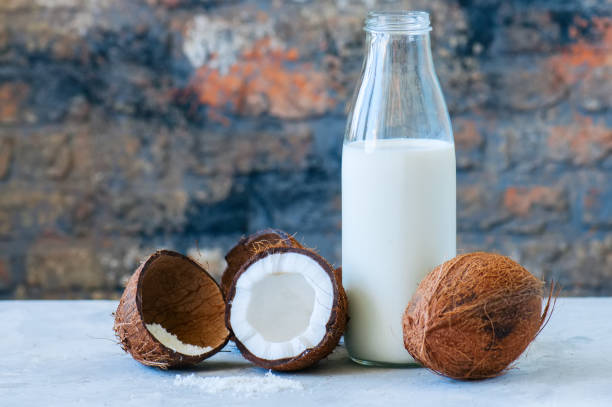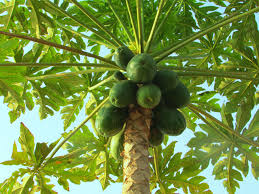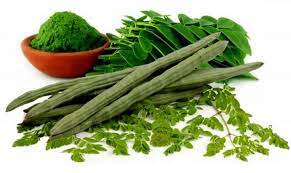
The coconut tree (Cocos nucifera) is a member of the family Arecaceae (palm family) and the only species of the genus Cocos. The term coconut can refer to the whole coconut palm or the seed, or the fruit, which, botanically, is a drupe, not a nut.
Coconuts are in season all year long and grow in groups of five to twelve (5 to 12) fruits each. A new group begins to grow every month. So, a bunch of coconuts mature once every month, with a coconut palm producing about one hundred to one hundred and twenty (100-120) coconuts a year.
It takes twelve (12) months for a coconut to initially mature from a new flower / inflorescence to a fully mature nut. A new inflorescence forms every month.
Where nuts are cut down regularly, a harvest cycle of forty-five (45) days is often used – some say the best yields come from nuts that fall to the ground naturally when they are fully mature. It’s these coconuts that make the best tasting coconut oil, like Lucy Bee, with the highest amounts of lauric acid.
Coconut milk is the oil-protein-water mixture, which is produced from fresh grated coconut kernels. The diluted form is called coconut milk while the concentrated form of mixture is called coconut cream. Coconut cream/milk is used to make various recipes such as fish & meat dishes and curries. It is also used in the preparation of bakery products, desserts, sweets, and for coconut milk flavoring. Skimmed coconut milk is also used as a protein supplement. Coconut milk/cream is also used in beverages, cocktails, and alcoholic drinks. Coconut milk/cream also has moisturizing and nourishing properties making it useful for skin care.
Coconut milk/cream is processed and preserved in different ready to use forms, such as canned products, pouches, and dehydrated form. Coconut milk and cream are used mainly in food and bakery industry. In addition, it has also been used in cosmetics and personal care industries in the recent past and is expected to experience incremental demand in the near future.
Over the forecast period of 2022 to 2032, coconut milk consumption is anticipated to increase at a high compound annual of eight point five percent (8.5%). Currently, the global coconut milk market is valued at US $ 1.66 billion and is expected to reach US $ 3.77 billion by the year 2032.
The growing consumer concerns associated with consuming conventional dairy-based food and beverage products and adopting vegan diets are expected to drive the growth of the coconut milk and cream market. The emergence of coconut-based food products demonstrates a shift in the customers’ demands, from animal-based products to plant-based products, with coconut-based products holding a prominent share.
This incremental shift toward a plant-based diet is primarily influenced by ecological concerns, health consciousness, ethical or religious beliefs, and awareness about environmental issues and animal rights. Regardless of classification criteria, reasons, or types, the number of vegans worldwide is on the rise, driving the demand for dairy-free food products and creating a subtle presence for coconut milk and cream as key vegan food ingredients.
Coconut is cultivated in about more than ninety (90) countries all over the world and a total of about sixty-four billion, three hundred million (64,300,000,000) nuts is produced per annum as of 2013. These nuts are mostly cultivated by the coastal and nearby region throughout the whole world and the demands are on the increase.
In Nigeria, the leading producing states out of the 20 are Niger, Kano, Jigawa, Zamfara, Kebbi, Sokoto, Katsina, Kaduna, Adamawa, Yobe, Borno, Taraba, Plateau, Nasarawa, Bauchi, Lagos and Ogun states.
Nigeria currently can only boast of two hundred and sixty-five thousand (265,000) metric tonnes of coconut production in 18th position of the world coconut production country index, a country that is bestowed with arable rain forest zone fertile for a crop that is non-indigenous to it. Thus, the nation can compete favorably in an increasing market.
With a population of over two hundred million (200,000,000) people, Nigeria has a comparative advantage in setting up a coconut milk plant.






















